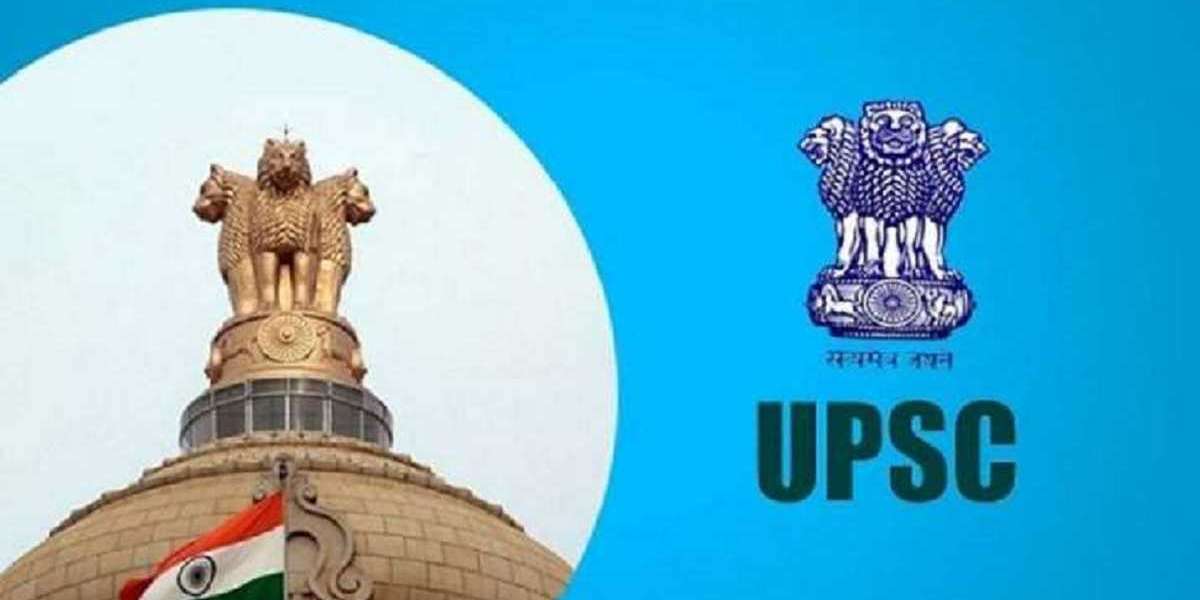The Indian Administrative Service (IAS) and the Union Public Service Commission (UPSC) examination stand as monumental gateways to one of the most prestigious and impactful careers in India. Each year, thousands of aspirants embark on the journey to crack this challenging examination, driven by the aspiration to serve their nation at the highest administrative levels. The IAS/UPSC exam is not just an evaluation of knowledge; it is a test of resilience, dedication, and comprehensive understanding of multifaceted subjects.
This guide aims to demystify the initial steps of IAS/UPSC exam preparation, providing aspiring candidates with a roadmap to embark upon this transformative journey. We will delve into the nuances of understanding the exam's structure, setting clear goals, creating a tailored study plan, gathering resources, and honing essential skills. By grasping these fundamental principles, aspirants can establish a strong foundation and embark on a purposeful trajectory toward conquering the challenges that lie ahead.
Understanding the IAS/UPSC Exam
Preliminary Examination (Prelims): The first stage involves two objective-type papers – General Studies (GS) and Civil Services Aptitude Test (CSAT). GS tests knowledge on various subjects, while CSAT evaluates reasoning and analytical abilities.
Main Examination (Mains): The second stage consists of nine papers, including one qualifying language paper and two optional subject papers. The other papers cover subjects like Essay, General Studies, and Ethics, among others.
Personal Interview: The final stage evaluates a candidate's personality, communication skills, and suitability for administrative roles through a face-to-face interview with a panel of experts.
The IAS/UPSC exam encompasses a comprehensive syllabus that spans a wide array of subjects, aiming to test candidates' intellectual depth and versatility. The syllabus includes but is not limited to:
1. History, Geography, Polity, and Economy of India.
2. Science and Technology.
3. Current Affairs and General Knowledge.
4. Ethics, Integrity, and Aptitude.
5. Optional Subjects (various disciplines like Literature, Science, Arts, etc.).
Current Affairs: Staying updated with national and international events is pivotal, as it helps candidates grasp the contemporary issues that shape the socio-political landscape.
General Knowledge: A solid foundation in general knowledge is essential for comprehending and contextualizing information, critical for the Mains and Interview stages.
In summary, understanding the IAS/UPSC exam's structure, stages, syllabus, and subject areas is paramount to laying a strong foundation for your preparation. The exam is not just a test of rote knowledge but a holistic assessment of your intellectual, analytical, and communicative abilities. As we proceed, we will delve deeper into the strategies required to navigate this multifaceted journey successfully.
Identifying the Best Study Materials
Recommended Books: Research and identify standard textbooks and reference materials suggested by experts and toppers for each subject in the syllabus.
Online Resources: Utilize reputable online platforms, educational websites, and digital libraries for e-books, study notes, and reference materials.
The Indian Administrative Service (IAS) and the Union Public Service Commission (UPSC) examination stand as monumental gateways to one of the most prestigious and impactful careers in India. Each year, thousands of aspirants embark on the journey to crack this challenging examination, driven by the aspiration to serve their nation at the highest administrative levels. The IAS/UPSC exam is not just an evaluation of knowledge; it is a test of resilience, dedication, and comprehensive understanding of multifaceted subjects.
In the vast landscape of civil services, the IAS/UPSC exam serves as a beacon of meritocracy, selecting individuals based on their intellectual prowess and potential to contribute meaningfully to the governance and development of the country. With the responsibility to shape policies, implement programs, and address critical societal issues, IAS officers play a pivotal role in steering the nation's trajectory.
However, the path to becoming an IAS officer is paved with rigorous preparation, unwavering determination, and strategic planning. The competition is fierce, the syllabus extensive, and the expectations high. Aspirants must not only grapple with a multitude of subjects but also cultivate critical thinking, effective communication, and problem-solving skills – attributes essential for a successful administrative career.
This guide aims to demystify the initial steps of IAS/UPSC exam preparation, providing aspiring candidates with a roadmap to embark upon this transformative journey. We will delve into the nuances of understanding the exam's structure, setting clear goals, creating a tailored study plan, gathering resources, and honing essential skills. By grasping these fundamental principles, aspirants can establish a strong foundation and embark on a purposeful trajectory toward conquering the challenges that lie ahead.
As the sun rises on the horizon of your dreams, illuminating the path to the coveted civil services, let us begin this expedition together – a journey that demands not only academic excellence but also the forging of character and the honing of determination. The pursuit of the IAS/UPSC examination is not just about acing a test; it is about embracing a lifelong commitment to the service of the nation.
Utilizing Newspapers, Magazines, and Journals
Newspapers: Regularly read national and international newspapers to stay updated on current affairs, socio-political developments, and issues of national importance.
Magazines and Journals: Subscribe to magazines like Yojana, Kurukshetra, and Civil Services Times for in-depth analysis of various subjects and contemporary topics.
Enrolling in Reputable Coaching Institutes
Coaching Institutes: Consider enrolling in established coaching institutes known for their quality guidance, study materials, and mock tests tailored for the IAS/UPSC exam.
Online Platforms: Explore online coaching platforms that offer comprehensive study materials, video lectures, and interactive test series.
Joining Study Groups and Forums
Study Groups: Collaborate with peers and form study groups to discuss and share insights on different subjects, exchange notes, and engage in productive discussions.
Online Forums: Participate in online forums and discussion boards where aspirants share study strategies, resources, and solve doubts collectively.
Accessing Previous Years' Question Papers and Mock Tests
Previous Years' Papers: Obtain and analyze previous years' question papers to understand the exam pattern, question types, and level of difficulty.
Mock Tests: Join a reputable test series to regularly attempt mock tests that simulate exam conditions, helping you improve time management and assess your preparation.
Seeking Guidance from Mentors and Toppers
Mentors: Identify experienced mentors or retired civil servants who can provide valuable insights, personalized guidance, and a structured approach to preparation.
Toppers' Strategy: Study the preparation strategies of previous year's toppers through interviews, blogs, or online platforms to gain insights into effective study techniques.
By actively engaging in mock tests and replicating exam conditions, you not only refine your knowledge and problem-solving skills but also develop the mental resilience necessary to excel in the IAS/UPSC exam. Mock tests serve as a bridge between theory and practice, helping you translate your preparation into effective performance on the actual exam day. As we conclude our journey through IAS/UPSC exam preparation, remember that consistent and focused mock test practice can play a pivotal role in shaping your success story in the realm of civil services.
Embarking on the journey of IAS/UPSC exam preparation is akin to setting sail on a quest of personal growth, academic excellence, and dedicated service to the nation. As we draw this guide to a close, it's evident that the path to success in the civil services demands more than mere rote learning; it necessitates a holistic approach that encompasses comprehensive understanding, critical thinking, and effective time management.
For aspirants seeking UPSC coaching in Ahmedabad, the city's vibrant academic landscape offers a range of reputable coaching institutes. These institutions provide valuable guidance, study materials, mock tests, and personalized mentorship tailored to the specific requirements of IAS/UPSC exam preparation. Consider enrolling in a recognized UPSC coaching center in Ahmedabad to benefit from the expertise of experienced faculty members and to connect with a community of like-minded aspirants.








